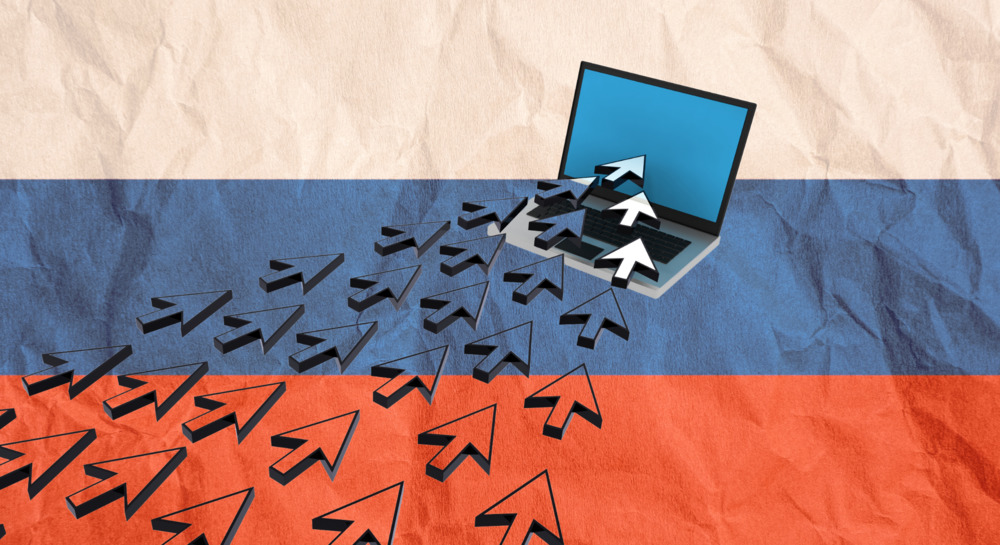Internet Traffic in Russia Nearly Triples in the Past Year
According to Cloudflare Radar, total web traffic in Russia has nearly tripled over the past year, with a noticeable surge starting from late July to early August. A similar trend is observed at MSK-IX, Russia’s largest internet exchange point, where average traffic through the company’s services increased by 27% over the year, with the most active growth also beginning in late July and early August. This period coincides with Russians experiencing access issues to YouTube, which previously accounted for about a third of all internet traffic, as reported by Forbes.
Telecom operators told the media that in August, they noticed a 5-10% spike in total traffic volume. Major providers such as Rostelecom, MTS, VimpelCom, ER-Telecom, and the Ministry of Digital Development declined to disclose current traffic growth figures to the press.
Notably, cross-border IPv6 traffic has grown significantly, according to MSK-IX data. Mikhail Klimarev, director of the Internet Protection Society Foundation, described the increase in traffic through MSK-IX as “unprecedented for this time of year.”
Cyberlawyer Stanislav Seleznev, who collaborates with the “Network Freedoms” project, suggests that Russian users have started downloading large amounts of “heavy” content from abroad: “Given that the growth began in August, it’s reasonable to assume it was triggered by users switching to downloading videos from foreign YouTube servers, bypassing Google’s caching infrastructure in Russia (Google Global Cache), which increases the overall traffic volume on operator networks.”
Independent IT expert and creator of “Escher II” Philipp Kulin notes that Russians began experiencing YouTube access issues as early as mid-July, and these problems persist. On July 25, Alexander Khinshtein, Chairman of the State Duma Committee on Information Policy, predicted that “by the end of the week, YouTube loading speeds would drop by 40%, and by the end of the next week, by 70%.” At the time, Roskomnadzor explained the decline in YouTube performance by the discontinuation of Google’s server infrastructure support in Russia (GGC).
Experts believe that Roskomnadzor is blocking the video service using technical threat countermeasures (TSPU) installed on operator networks. On November 15, Russian President Vladimir Putin promised to look into the issue of YouTube slowdowns during a conversation with Mosfilm CEO Karen Shakhnazarov.
Key Factors Behind the Surge in Russian Internet Traffic
The steady growth in traffic through MSK-IX since August 2024 is due to several factors, but the main one is the so-called “YouTube problem” in Russia, according to analyst and Telegram channel author Alexey Boyko. This has led to a noticeable increase in traffic for “services that solve the problem” and in YouTube downloads from Google’s foreign servers, he added.
Other reasons for the traffic surge, Boyko says, include increased usage and downloads from Telegram (some of whose servers are in Europe), as well as DDoS attacks originating from abroad.
Mikhail Klimarev, citing Google’s transparency report, points out that YouTube views in Russia began to decline on August 2, 2024—the service’s traffic volume dropped by about 30% and has since stabilized at that level.
Boyko believes that the more resources are restricted, the more users are motivated to find ways to “fix” the situation: “As a result, traffic that was previously handled by CDN servers in Russia is now routed abroad, and has to be repeatedly transmitted through international connections with foreign telecom operators.”
According to Klimarev, after key telecom equipment suppliers left the market, operators have found it difficult to maintain and service existing systems.
Amid the YouTube slowdown, VK reported last week on the success of its “VK Video” platform. The average daily number of views increased by 48.5% compared to last year, reaching 2.6 billion, while downloads grew by 20% to 30 million.



